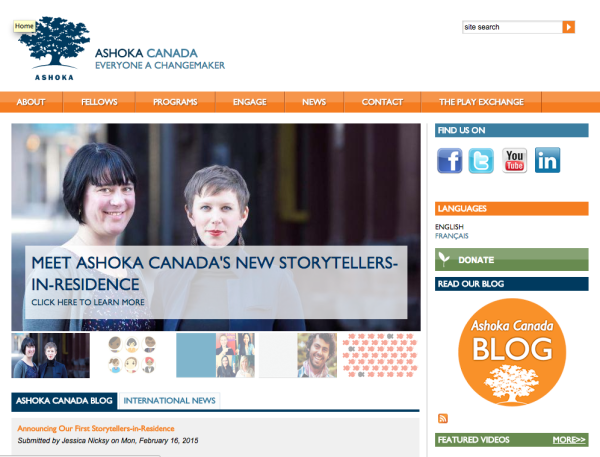The more we get together, the more (solutions-oriented?) we become

When we launched Discourse Media almost one year ago, we had a lot of questions.
We had a hunch that a more collaborative approach to journalism would enable us to do a better job of reporting on potential solutions to major problems. We felt this concept applied to all levels of the journalistic process: reporting, engaging audiences and the ever-ominous funding question.
The most innovative sectors of every field are achieving results through more and more collaboration. Why shouldn’t journalism be the same?
What we didn’t know, though, was how to go about that in a way that was in line with our values. As journalists, we typically keep our sources distant. That arm's-length relationship protects our autonomy and the authenticity of our work. How could we embed ourselves more deeply in innovative projects or organizations while maintaining autonomy? Could this happen genuinely? What did it look like on the ground?
The same questions loom over the funding piece of the equation. Marked shifts in how journalism is paid for are underway. Sponsored content is on the rise. Increasingly, philanthropic organizations are funding journalism. (According to the fascinating report Growth in Foundation Support for Media in the United States, media grants in the U.S. increased by 21 per cent between 2009 and 2011, even though the number of organizations funding media remained the same.)
While we see promise in media organizations forging new revenue sources, we wondered about impact of this trend on what we report on and how. Is there risk in tying journalism to volatile funding cycles driven by the interests of philanthropic organizations?
Over the past year we’ve scratched the surface of some answers to these questions. We’re over the moon that now, thanks to a generous grant from Ashoka Canada (irony noted), we will be able to explore more deeply and engage in a broader conversation.
This month, Discourse was awarded the first ever Ashoka Storyteller in Residence (STiR) Fellowship in Canada. This fellowship will support us in conducting a three-month research project on how traditional and startup media organizations in Canada and elsewhere are integrating collaborative, solutions-oriented journalism frameworks into their current models, and how we can better collaborate to improve journalism about solutions.
STiR, which existed in Europe before launching in Canada this year, has until now supported individual journalists. This time around, Ashoka decided to take us on as a team and allow us to take a different approach: a solutions-oriented look at solutions-oriented journalism, if you will.
Over the next few months, we’ll talk with journalists, NGOs, social entrepreneurs, newsroom editors, members of the private sector and many others about their experiences with collaborative approaches to improving journalism, and what we can do to make collaborations more likely, fruitful and effective. We’ll publish our findings this spring.
Stay tuned.
